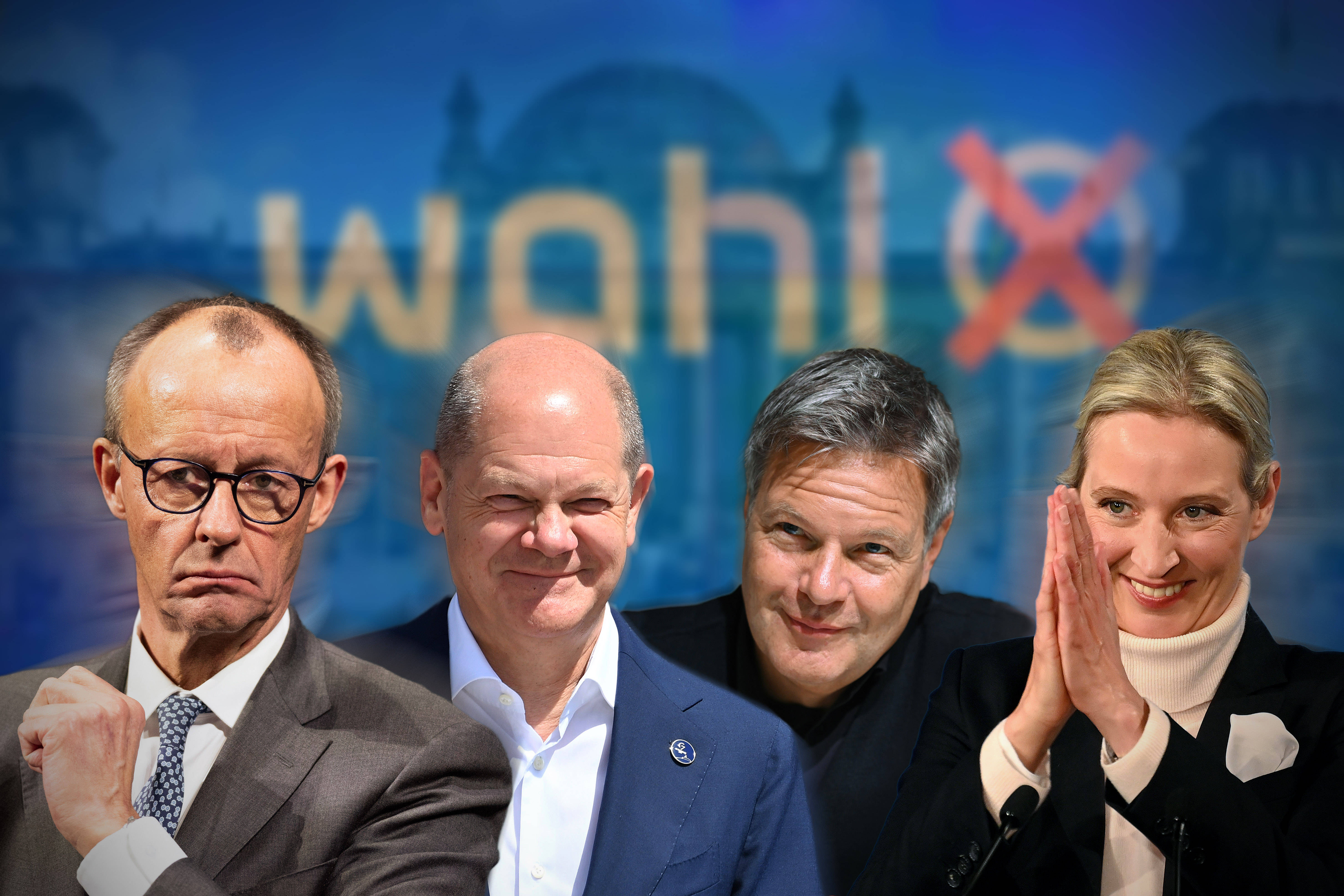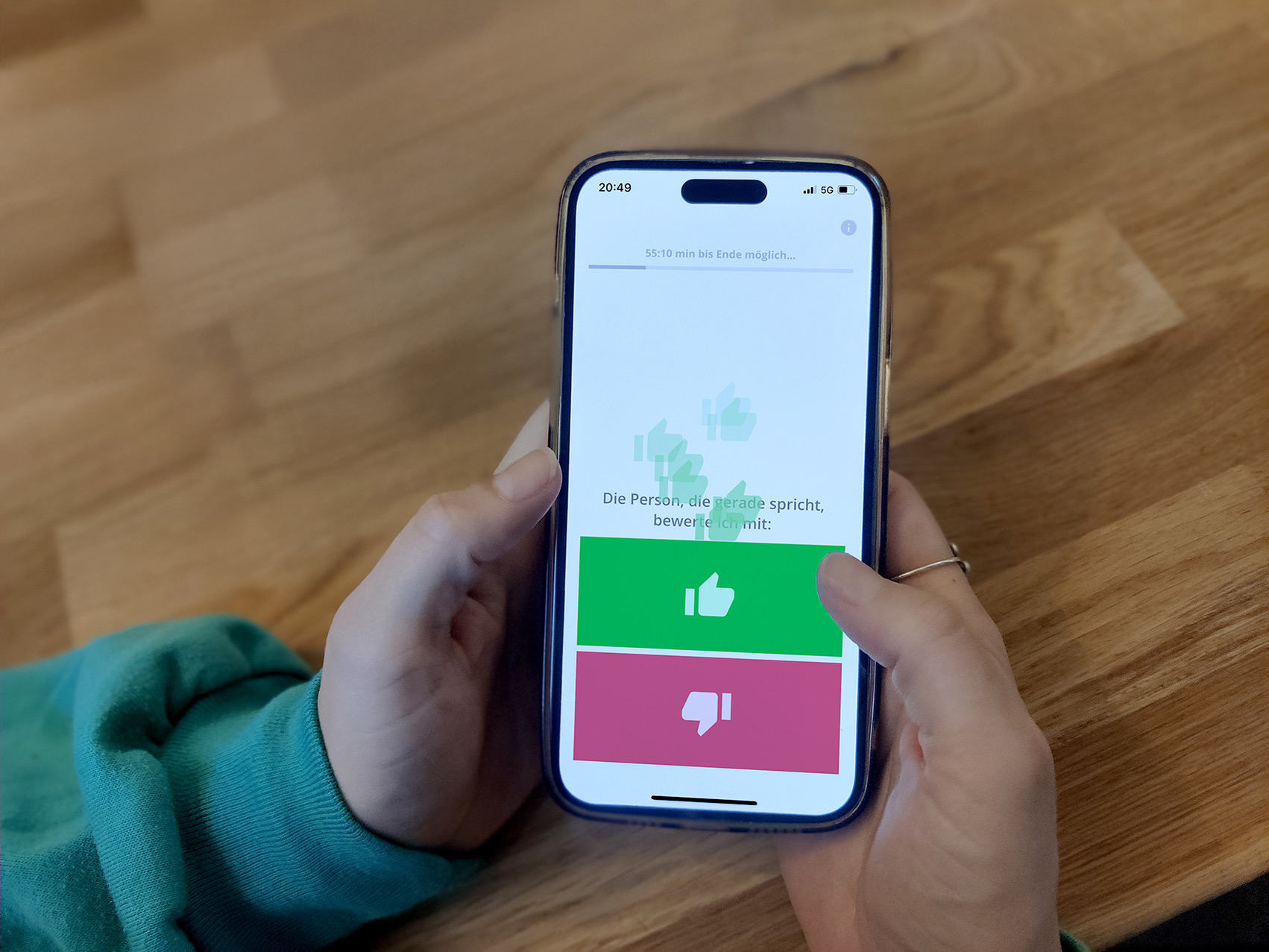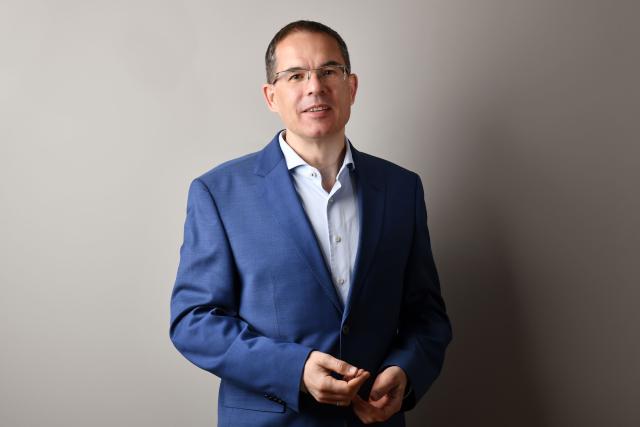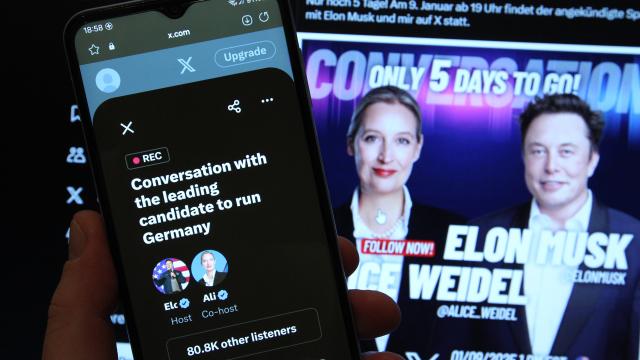

Research shows: Televised debates are an important decision-making tool
Despite TikTok, Instagram and the like, televised debates are still the most important event in an election campaign. No other format reaches so many people. Jürgen Maier found this time and again in over 20 years of research into campaign communication on television. It was no different in this year's short federal election campaign, in which there were six encounters between the top candidates from the CDU, SPD, the Greens and AfD: "The debate between Scholz and Merz on 9 February was watched by around 12.5 million viewers. Such ratings are usually only achieved by major entertainment shows or sporting events," says the political scientist.
Televised debates as a research area
Research shows that televised debates attract people who would otherwise have little interest in politics. "Many people today find politics confusing," says Maier. "Every politician makes statements on social media and other channels, some of which are useful, some less so, and some of which are provocative. For many, the result is a confusing cacophony of voices and positions. Television debates provide an opportunity to make sense of it all. The leading candidates appear, discuss the key issues and make concrete, pointed statements in understandable language. This makes such televised debates a valuable guide.
In addition, these "political shows" encourage people to talk about them with others - at work, with their families or on social media. This follow-up communication also helps to shape opinions and can further increase the impact of the debates. "We see that viewers' opinions often change again after the debate, when they talk about it with others or read media reports about it. Such factors give televised debates a special place in election campaigns. "This makes them a very interesting field for basic research in political communication," Maier explains.
Studies since 2002
Experimental research on televised debates has a long tradition in Maier's Faculty of Cultural and Social Studies. As early as 2002, when then-Chancellor Gerhard Schröder and his challenger Edmund Stoiber faced each other in the first format of its kind in Germany, Maier and other researchers invited participants to a university computer lab, where they entered their reactions by pushing buttons on a computer keyboard.
In 2005, the methods were refined using stepless dials, and in 2013, a collaboration with computer scientists brought the decisive technical advance. Together, they developed an app for real-time measurements directly on a smartphone or tablet. "This opened up completely new possibilities," says Maier. "It no longer mattered whether the study participants were sitting in Kaiserslautern, Kiel, Munich or in the laboratory in Landau - research became much more participatory and reached a much broader target group."
Real-time evaluation
Prior to this year's study, the technology was further developed with the help of the German Research Centre for Artificial Intelligence (DFKI), computer scientists at RPTU and coneno GmbH, a DFKI spin-off.

Through extensive publicity, potential participants were invited to download the "real smart" application and contribute data from home on one or more of the six TV dates. To do this, they first answered a few questions in the app on the respective evening, for example about their political preferences and their evaluation of the candidates. Once the program was on air, participants were able to rate the politician speaking using a simple slider or thumbs up/down button. Afterwards, participants were asked to answer the questions again.
Feature film as a counterbalance
"This allowed us to see exactly how viewers reacted to certain statements or behaviour. If a candidate seemed particularly convincing or insecure, this immediately showed up in the ratings," explains the political scientist. To compare the results, a controlled experiment was conducted with students at the university during the first Scholz-Merz debate: one group watched the debate, while a control group watched a movie instead. Both groups had to complete questionnaires before and after the debate or the movie, just as the participants would have done at home. This allowed the researchers to distinguish between the effects of the televised debate and other influences. If the experimental group changed their preferences for the chancellor or their voting intentions more than the control group, this could be attributed to a causal effect of the televised debate.
Thanks to direct digital recording, the project team was able to publish the first results online the very next day. The team, which included students, needed more time for a more detailed evaluation, such as linking the evaluation data with the content of the debates using statistical methods.
Measurable impact
Many of the results of the current study confirm the findings of the last twenty years. "Televised debates have been shown to influence voting decisions, and politicians can improve their approval ratings in these formats," concludes Maier. "This year again, the ratings improved by an average of up to 0.8 scale points". The study also shows that debates can be a decisive factor for undecided voters in particular: after the debates, the proportion of undecided voters fell by an average of three to five percentage points, with 14 percent changing their chancellor preference and 18 percent changing their voting intention.
Also surprising findings
But there were also unexpected results. "The formats in which the candidates discussed issues with citizens, such as ZDF Klartext or ARD Wahlarena, had similar effects on voting intentions and chancellor preferences as the more confrontational duels.
This is surprising because it was previously assumed that direct confrontation would have a stronger effect. Furthermore, the town hall meetings do something that the duels apparently do not: they make the election campaign seem less negative and personalised. This contrast was previously unknown to researchers and shows that such formats can have a different, more democracy-supporting function. Perhaps it is worth considering broadcasting such programs on a regular basis, even outside election campaigns".
A method that works
"Without the technology, which worked excellently, such a comprehensive survey would not have been possible," says Maier. The number of people willing to participate was also impressive: 1,521 took part in the first debate between Scholz and Merz, and many stayed on board for subsequent debates. "This gives us the opportunity to study changes in the same participants using different formats - to the best of my knowledge, this approach has never been taken before".
Despite the good turnout, recruiting participants was an organisational challenge. "We will develop strategies to make the outreach and recruitment of participants more effective in future studies".

For a deeper dive into the topic

Then browse through the selection of media reports and scientific publications:
Maier, J., Maier, M. & Faas, T. (2022). Do televised debates affect voting behavior? Evidence from the 2009, 2013, and 2017 German federal elections. In R. Schmitt-Beck et al. (Eds.), The changing German voter. Oxford, 242-256.
>> VIEW PAPER
Bundestagswahl 2025. Warum TV-Duelle "wichtiger denn je" sind. Deutschlandfunk, 7. Februar 2025
>> VIEW INTERVIEW
TV-Duelle nicht wahlentscheidend? Doch, sagt diese App aus Kaiserslautern. SWR-Inforadio, 10 Februar 2025
>> GO TO RADIO FEATURE
Vage bitte, aber nicht zu vage. ZEIT ONLINE, 9. Februar 2025
>> VIEW ARTICLE
Maier, J. & Faas, T. (2019). TV-Duelle. Wiesbaden: Springer VS
>> GO TO BOOK

These topics might also interest you:


